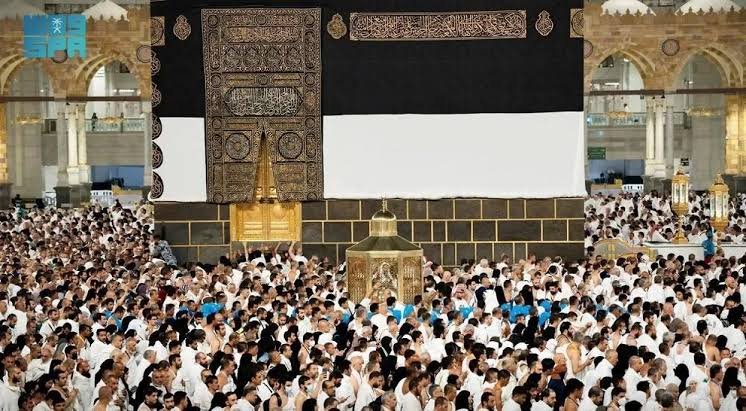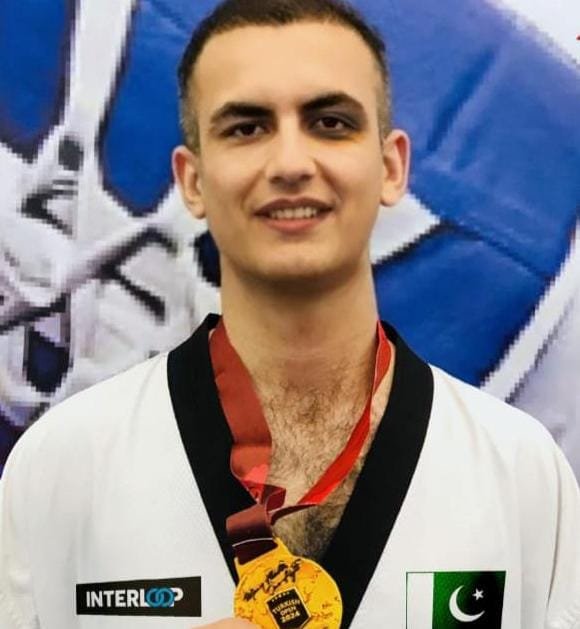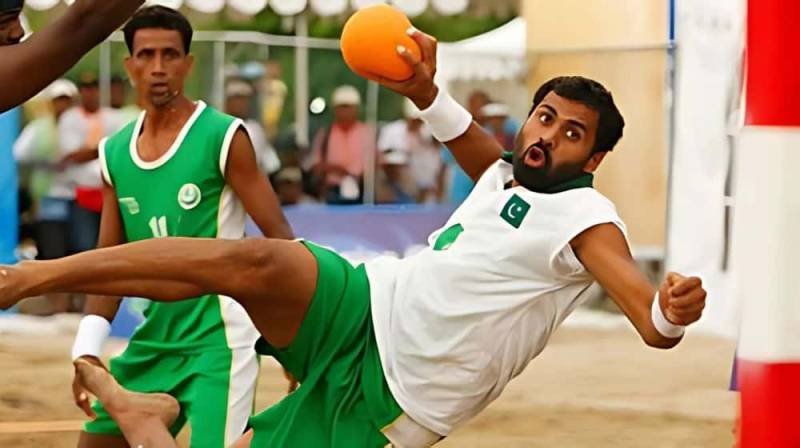Pakistan’s Hajj 2025 Support System: How the Special Facilitation Center in Makkah Helped Over 115,000 Pilgrims
Makkah, June 2025 – In a remarkable effort to provide seamless services to Pakistani pilgrims, the Government of Pakistan established a fully equipped and round-the-clock operational facilitation center in Makkah during Hajj 2025. This initiative, designed to support both government and private scheme pilgrims, proved to be a crucial resource for more than 115,000 Pakistani nationals undertaking the sacred journey.
As Hajj continues to draw millions of Muslims from across the globe every year, managing such a large congregation in a foreign country is a major logistical challenge. For many, the journey to Makkah is the most important event of their lifetime. It demands not only spiritual focus but also emotional, mental, and physical endurance. The addition of a dedicated Pakistani facilitation center helped reduce these burdens, ensuring that pilgrims could concentrate on their religious duties while receiving timely help for any problems they faced.
A 24/7 Lifeline for Pakistani Pilgrims
The Hajj 2025 facilitation center was operational 24 hours a day, 7 days a week. It was staffed with experienced professionals from multiple departments, who worked in shifts to ensure constant support. The center functioned as a centralized hub for solving all types of problems that pilgrims could face during the Hajj period.
These problems ranged from logistical difficulties, such as lost or delayed transportation and misplaced travel documents, to more urgent needs like medical emergencies, accommodation issues, or communication troubles. Many pilgrims, especially elderly or first-time travelers, often felt overwhelmed in the crowded and fast-paced environment of Hajj. This is where the facilitation center came in as a crucial support system.
Thanks to this proactive setup, over 3,000 individual complaints and issues were resolved on the spot or within a short span of time. The feedback from pilgrims indicated that the center’s role went beyond just solving complaints — it provided emotional reassurance, guidance, and a sense of safety for thousands of people navigating an unfamiliar environment.
Buy Any Toyota Car Before June 25 and Save Up to Rs. 10 La
Read This Artical
Leadership and Coordination: The Role of Ayesha Ijaz
Heading the facilitation center was Ayesha Ijaz, a seasoned administrator known for her organizational skills and field experience. Under her leadership, the center was divided into several key operational units, each focused on a specific area of service. According to Ijaz, the goal was to simplify processes and deliver targeted help with minimal delay.
She explained that the team had anticipated common problems in advance and created tailored solutions. For instance, dedicated desks were created for communication assistance, flight departures, and complaint handling. The staff was trained to handle a wide range of issues calmly and efficiently, even under high-pressure situations.
Specialized Units Inside the Center
The center included several specialized desks and units, each operating as a mini-department with its own trained staff and standard operating procedures.
-
Departure Cell
This unit coordinated with airlines, transport agencies, and Saudi authorities to ensure that Pakistani pilgrims faced no hurdles during departure or arrival. From confirming flight schedules to resolving last-minute boarding issues, the Departure Cell worked tirelessly to streamline the pilgrims’ return journeys. -
Zong Desk (Communication Help Unit)
Given the high reliance on mobile phones and internet communication, the Zong Desk proved to be extremely valuable. Many pilgrims faced problems such as SIM activation issues, poor connectivity, or unfamiliarity with international roaming services. The desk helped resolve these problems, ensuring pilgrims remained in contact with their loved ones in Pakistan throughout the Hajj period. -
Complaints Cell
Perhaps the busiest section, the Complaints Cell received tens of thousands of complaints and queries. Staffed by a large team, it was responsible for listening to each pilgrim’s concern, filing the complaint, assigning it to the appropriate department, and following up until resolution.
Complaint Statistics and Resolution Rates
According to Hafiz Obaidullah Zakaria, who supervised the Complaints Cell, the numbers tell a powerful story of efficiency and commitment. Over the course of the Hajj season, the center received a staggering 30,147 complaints from Pakistani pilgrims.
Out of these:
-
2,446 complaints were resolved within the first 24 hours of being lodged — a record of rapid response in such a high-pressure environment.
-
3,000+ complaints were successfully resolved throughout the duration of the operation.
-
580 complaints were found to be baseless or due to misunderstandings, which were clarified after verification.
-
113 complaints remained under investigation at the time of reporting, with follow-up procedures already underway.
This transparent and accountable system highlighted the importance of data collection and documentation. Every complaint was logged with a unique ID and monitored through a digital tracking system, allowing real-time updates on its status.
Building Trust and Emotional Support
The facilitation center’s role went beyond just solving logistical issues. It provided emotional and psychological comfort to pilgrims who were facing distress due to fatigue, illness, or confusion in the unfamiliar environment of Makkah.
Volunteers, counselors, and trained staff members often interacted with elderly pilgrims, women traveling alone, and people with special needs. From offering moral support to helping with daily routines, the center humanized the entire Hajj support system.
In one case, a 70-year-old woman from Multan who lost her group in the crowd was brought to the center by volunteers. Not only was she offered food and medical care, but the staff also helped reunite her with her group within hours — a clear example of the system working at its best.
Real-Time Coordination With Pakistan and Saudi Authorities
The success of the facilitation center also depended on strong coordination with multiple external stakeholders, including:
-
Saudi Ministry of Hajj and Umrah
-
Airlines (PIA and private carriers)
-
Accommodation providers
-
Transport contractors
-
Pakistani Hajj Mission in Saudi Arabia
-
National Database & Registration Authority (NADRA)
-
Pakistani mobile service providers like Zong
Regular meetings and emergency protocols were established between these parties. In urgent cases, special task forces were formed to intervene within minutes. This real-time cooperation ensured that problems didn’t linger and that Pakistani pilgrims received timely and practical help.
Technology and Digitization in Hajj Operations
One of the most appreciated innovations at the facilitation center was the use of digital tools for better management. From complaint filing systems and data dashboards to real-time GPS tracking of buses and automated SMS alerts for flight changes — the digital revolution played a key role.
A special mobile app was launched by the Government of Pakistan which allowed pilgrims to:
-
Register complaints instantly
-
Track resolution status
-
Get updates on transportation and accommodation
-
Access emergency contact numbers
-
Read FAQs related to Hajj procedures
According to the center’s IT head, more than 45,000 users installed the app during the Hajj period. The feedback suggested that it was especially useful for younger pilgrims who preferred handling issues digitally.
Government’s Vision Behind the Initiative
The entire operation reflects the Government of Pakistan’s broader vision to improve the Hajj experience year after year. Federal Minister for Religious Affairs, in a statement, praised the initiative and said:
“We are not just sending pilgrims to Hajj, we are taking responsibility for their safety, dignity, and comfort throughout the process. This facilitation center is a major leap forward in that direction.”
The government also emphasized that feedback from this year would be used to further enhance facilities in Hajj 2026 and beyond. Special attention will be given to the needs of women, elderly pilgrims, and people with disabilities.
Public Reaction and Positive Feedback
The facilitation center received positive reviews from thousands of pilgrims and their families back home. Many posted on social media, thanking the government and staff for their tireless support.
Pilgrims appreciated:
-
The politeness and dedication of the staff
-
Quick response time
-
Free food and water at the center
-
Comfortable seating and prayer areas
-
Wi-Fi and charging facilities
-
Availability of wheelchairs and first-aid services
A Model for Other Countries?
Observers believe that Pakistan’s initiative could serve as a model for other countries sending large groups of pilgrims to Saudi Arabia. The idea of setting up a country-specific facilitation center that provides 24/7 support, digital complaint tracking, and direct coordination with multiple stakeholders has proven effective and scalable.
Countries like Indonesia, India, and Egypt are reportedly studying the model to see how they can implement similar strategies for their citizens.
Final Thoughts
The special facilitation center set up by the Government of Pakistan during Hajj 2025 is being hailed as a resounding success. It not only provided practical solutions to over 115,000 pilgrims but also showcased the government’s deep commitment to the spiritual and physical well-being of its citizens.
By addressing problems quickly, offering digital tools, and operating round the clock, the center ensured that Pakistani pilgrims had a safer, smoother, and more fulfilling Hajj experience. As feedback continues to pour in, it is clear that this initiative will be remembered as a milestone in the history of Pakistan’s Hajj management efforts.




